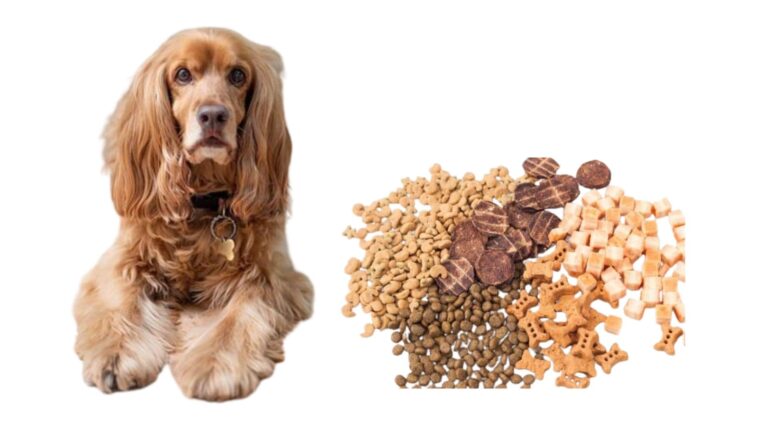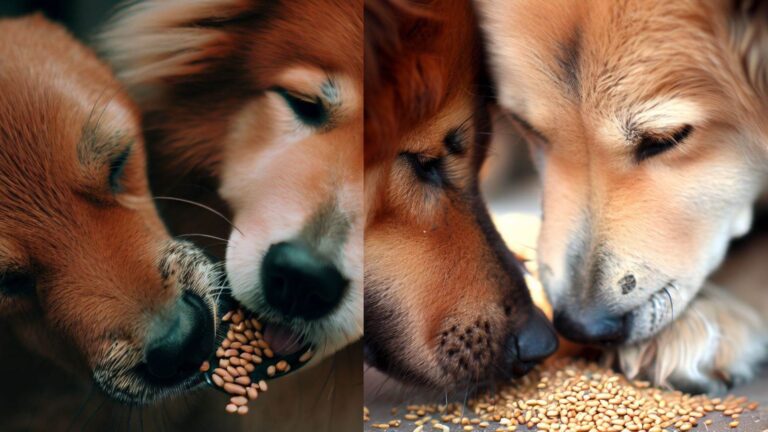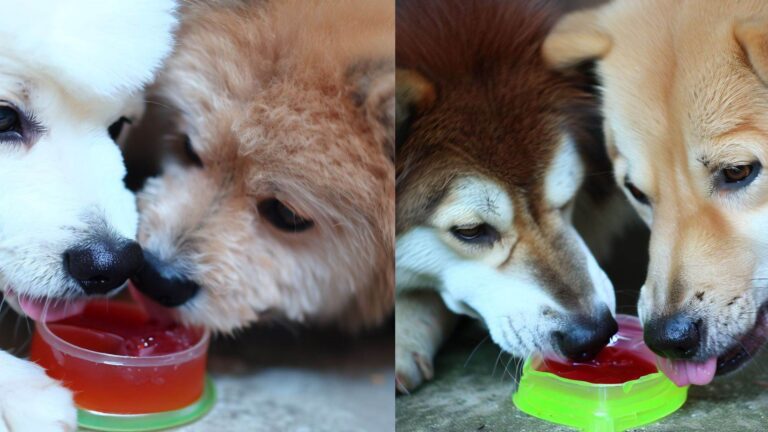Many humans enjoy artichokes as a popular vegetable as part of their diet. But what about dogs? Can dogs eat artichokes?
The short answer is yes; dogs can eat artichokes. However, there are some things you should consider before feeding your furry friend this vegetable.
Table of Contents
Nutritional Value of Artichokes
Artichokes are low in fat and calories, making them a good choice for dogs needing to lose or maintain a healthy weight. They are also high in fiber, which can help with digestion and bowel regularity. Additionally, artichokes are a good source of:
- Vitamins C
- Vitamins K
- Folate
- Potassium

Benefits of Artichokes for Dogs
Artichokes can provide several health benefits for dogs when given in moderation. Some of these benefits include:
- Promotes Digestive Health: Artichokes are high in fiber, which can help regulate the digestive system and prevent constipation. They also contain inulin, a type of prebiotic fiber that supports the growth of beneficial gut bacteria, promoting a healthy digestive system.
- Anti-inflammatory Properties: Artichokes contain antioxidants, including polyphenols and flavonoids, which help reduce inflammation in the body. This can help improve overall health and reduce the risk of chronic diseases such as cancer and heart disease.
- Lowers Cholesterol: Artichokes contain a compound called cynarin that helps lower cholesterol levels by increasing bile production in the liver.
- Good Source of Vitamins and Minerals: Artichokes are a good source of vitamins C and K, folate, and potassium. These nutrients are essential for maintaining a healthy immune system, strong bones, and overall health.
- Weight Management: Artichokes are low in calories and fat, making them a healthy treat option for dogs who need to lose weight or maintain a healthy weight.
- Antioxidant Properties: Artichokes contain a variety of antioxidants, which can help reduce oxidative stress and prevent cell damage. This can help protect against chronic diseases and promote overall health.
It is important to note that while artichokes can provide health benefits for dogs, they should be given in moderation and in small amounts.
Risks of Feeding Artichokes to Dogs
While artichokes can provide health benefits to dogs, they also pose some risks. Here are some risks to consider before feeding artichokes to your dog:
- Choking: The tough outer leaves of the artichoke can be difficult for dogs to chew and swallow, increasing the risk of choking. Always cut the artichokes into small pieces before feeding them to your dog to reduce the risk of choking.
- Digestive Upset: Artichokes are high in fiber, which can cause digestive upset in dogs if fed excessively. Eating too much artichoke can cause diarrhea, gas, and bloating in dogs.
- Allergic Reactions: Some dogs may be allergic to artichokes, which can cause a range of symptoms, including itching, swelling, hives, vomiting, and diarrhea. If you notice any of these symptoms after feeding artichokes to your dog, stop feeding them immediately and consult with your veterinarian.
- Oxalates: Artichokes contain oxalates, which can bind to calcium and cause kidney stones in some dogs. If your dog has a history of urinary tract problems or kidney issues, it is best to avoid feeding them artichokes.
- Pesticides: Artichokes may be treated with pesticides, which can be harmful to your dog if ingested. Always wash artichokes thoroughly before feeding them to your dog, and consider purchasing organic artichokes to reduce the risk of pesticide exposure.
While artichokes can provide health benefits to dogs, it is important to feed them in moderation and to monitor your dog for any signs of digestive upset or allergic reactions.
How To Prepare Artichokes For Dogs?
When preparing artichokes for dogs, it is important to ensure that they are cooked and cut into small, manageable pieces to reduce the risk of choking and improve digestion. Here is a simple way to prepare artichokes for your dog:
- Wash the artichokes thoroughly under running water to remove any dirt or debris.
- Cut off the stem and the top 1/3 of the artichoke.
- Use kitchen scissors or a sharp knife to trim the pointed tips off the remaining leaves.
- Cut the artichoke in half lengthwise and remove the hairy choke in the center of the artichoke.
- Cut the artichoke halves into small, bite-sized pieces.
- Steam or boil the artichoke pieces until they are soft and tender. Do not add any salt or seasoning.
- Allow the artichokes to cool completely before feeding them to your dog.
You can also mix the cooked artichokes with your dog’s regular food or serve them as a standalone treat.
How to Feed Artichokes to Your Dog?

If you decide to feed your dog artichokes, it’s important to do so in moderation. Start with a small amount and watch for any signs of digestive upset or allergic reaction. You can serve artichokes cooked or raw, but cooked artichokes are easier for dogs to digest. Cut the artichokes into small pieces and mix them with your dog’s regular food.
Read More: Can Dogs Eat Sauerkraut?
FAQs
Can dogs eat artichokes?
Yes, dogs can eat artichokes in moderation and small amounts. Artichokes can provide health benefits, but they also pose some risks.
Are artichokes toxic to dogs?
Artichokes are not toxic to dogs, but they may cause digestive upset or allergic reactions in some dogs.
How should I prepare artichokes for my dog?
Always cut the artichokes into small pieces before feeding them to your dog to reduce the risk of choking. Steaming or boiling them is also recommended to make them easier to digest.
How much artichoke can I feed my dog?
Feeding artichokes in moderation and in small amounts is recommended, as too much can cause digestive upset. Consult with your veterinarian for specific feeding guidelines based on your dog’s size and health.
Can artichokes cause diarrhea in dogs?
Artichokes are high in fiber, which can cause digestive upset in dogs if fed excessively. Too much artichoke can cause diarrhea, gas, and bloating in dogs.
Can artichokes cause allergies in dogs?
Some dogs may be allergic to artichokes, which can cause a range of symptoms, including itching, swelling, hives, vomiting, and diarrhea.
Can artichokes cause kidney stones in dogs?
Artichokes contain oxalates, which can bind to calcium and cause kidney stones in some dogs. If your dog has a history of urinary tract problems or kidney issues, it is best to avoid feeding them artichokes.
Can artichokes help with my dog’s digestion?
Artichokes are high in fiber and contain prebiotic inulin, which can help regulate the digestive system and promote a healthy gut microbiome.
Can artichokes help with weight management in dogs?
Artichokes are low in calories and fat, making them a healthy treat option for dogs needing to lose or maintain a healthy weight.
Should I consult with my veterinarian before feeding my dog artichokes?
Yes, it is always recommended to consult with your veterinarian before adding any new foods to your dog’s diet, including artichokes. Your veterinarian can advise you on the appropriate feeding amount and frequency based on your dog’s specific health needs.
Can dogs eat artichokes and spinach?
Yes, dogs can eat artichokes and spinach in moderation and in small amounts. Both artichokes and spinach can provide health benefits, but they also pose some risks.
Can dogs eat artichoke hearts?
Yes, dogs can eat artichoke hearts. Artichoke hearts are the fleshy, edible portion of the artichoke and are safe for dogs to consume in moderation. They are low in calories and fat, high in fiber, and contain vitamins and minerals such as vitamin C, magnesium, and potassium.
Final Thoughts
While dogs can eat artichokes, it’s important to do so in moderation and caution. Always watch your dog for any signs of a digestive upset or allergic reaction, and consult your veterinarian if you have any concerns. As with any new food, it’s best to introduce artichokes slowly and in small amounts to ensure your dog can tolerate them.






